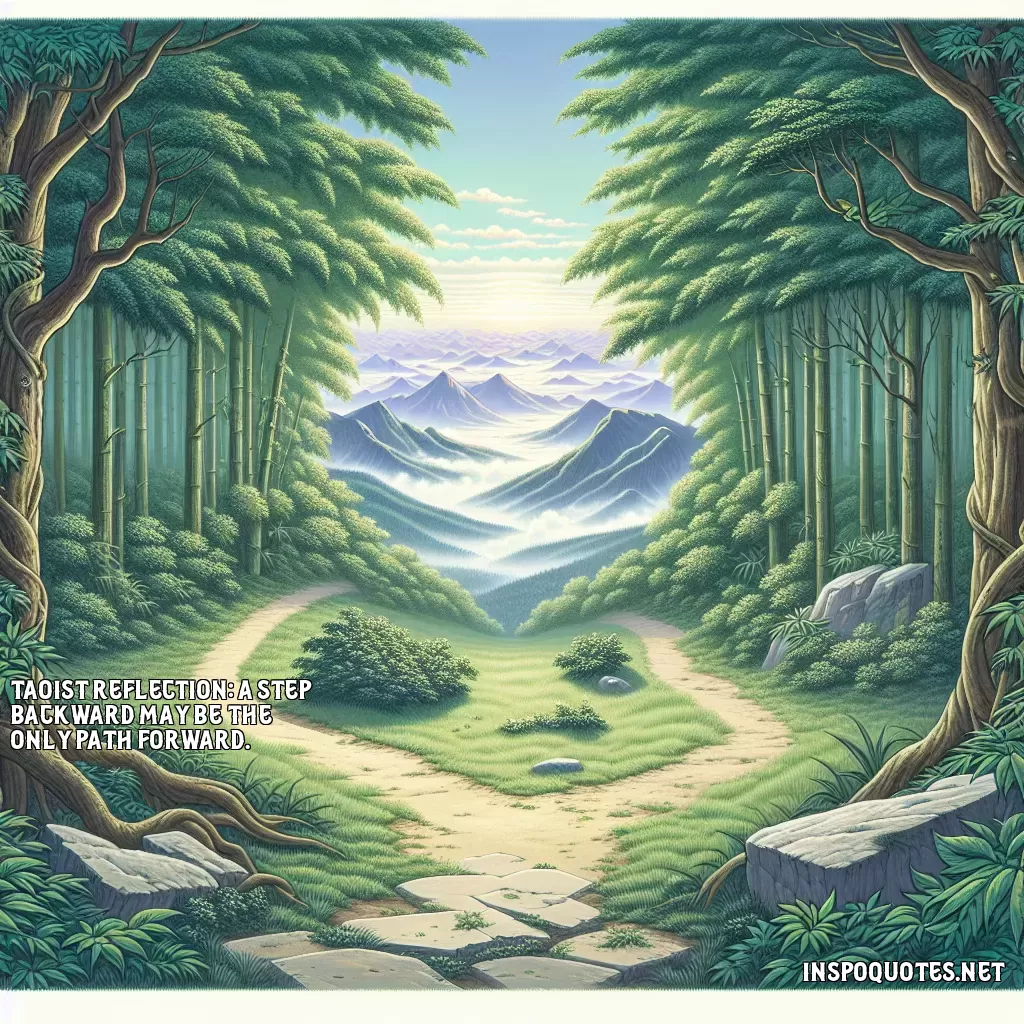
Taoist Reflection: A step backward may be the only path forward.
Author: Laozi
👁️ 29 views
The quote "A step backward may be the only path forward" invites us to explore a perspective deeply rooted in Taoist philosophy, which emphasizes balance, naturalness, and the interconnectedness of all things. In any pursuit, it's easy to become fixated on progress, equating forward movement with success and fulfillment. However, Taoism suggests that life's journey is not linear but cyclical and dynamic. Taking a step backward doesn't necessarily denote failure or regression. Instead, it can be a strategic retreat that allows for reflection, reassessment, and ultimately, clearer vision. Much like water, which flows around obstacles, a backward step can be a means to navigate life's challenges more effectively. It embodies the Taoist principle of "wu wei," or effortless action, which advocates for going with the natural flow of things rather than forcing one's way through them. In practice, stepping back may mean pausing to evaluate one's values and priorities, gaining a fresh perspective, and understanding that obstacles often demand alternative approaches. It encourages patience and humility, recognizing that what may seem like delays or setbacks could actually be opportunities for growth, learning, and redirection. This reflective pause can lead to more authentic progress aligned with one's true path, ultimately facilitating a more harmonious and resilient life journey. Through this lens, the backward step becomes an integral part of the dance of life, highlighting the wisdom in balance and adaptability.
Quote By: Laozi
Laozi, also known as Lao Tzu, was an ancient Chinese philosopher and writer, traditionally considered the founder of Daoism (Taoism) and attributed as the author of the "Dao De Jing" (Tao Te Ching), a foundational text of the philosophy. Believed to have lived in the 6th century BCE during the Zhou Dynasty, Laozi's teachings emphasize harmony with the Dao (Tao), natural simplicity, and the pursuit of wisdom through humility and non-action (wu wei). Revered as a sage, his influence extends beyond philosophy into spiritual and political thought throughout Chinese history and beyond.
Bio added on: 2025-02-13 13:50:25